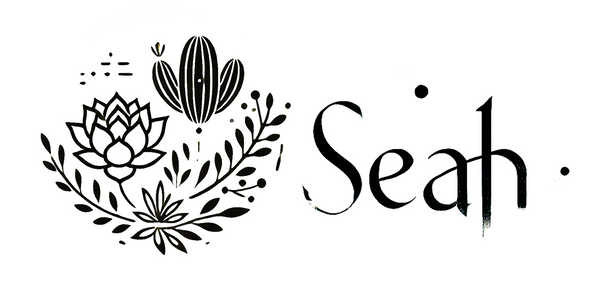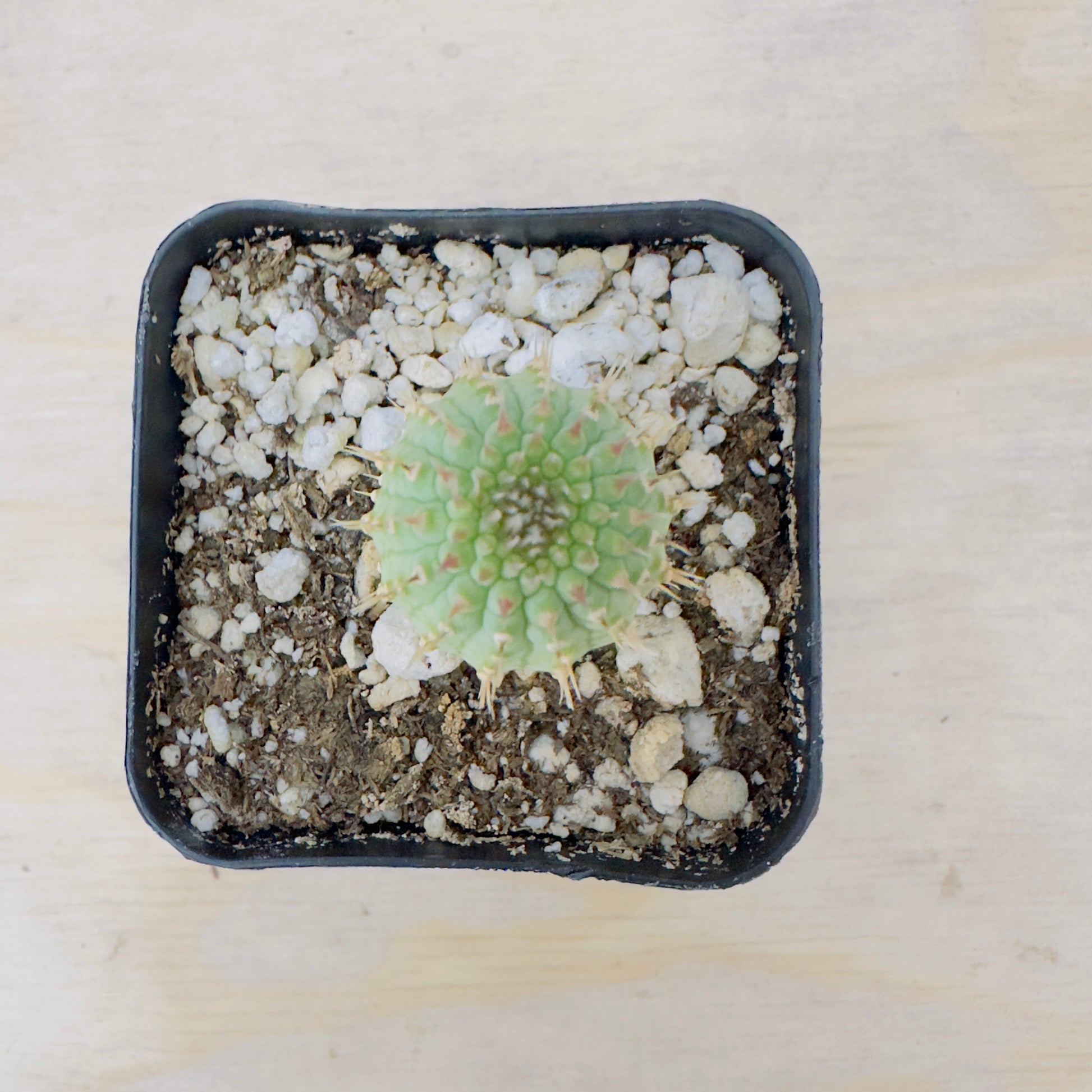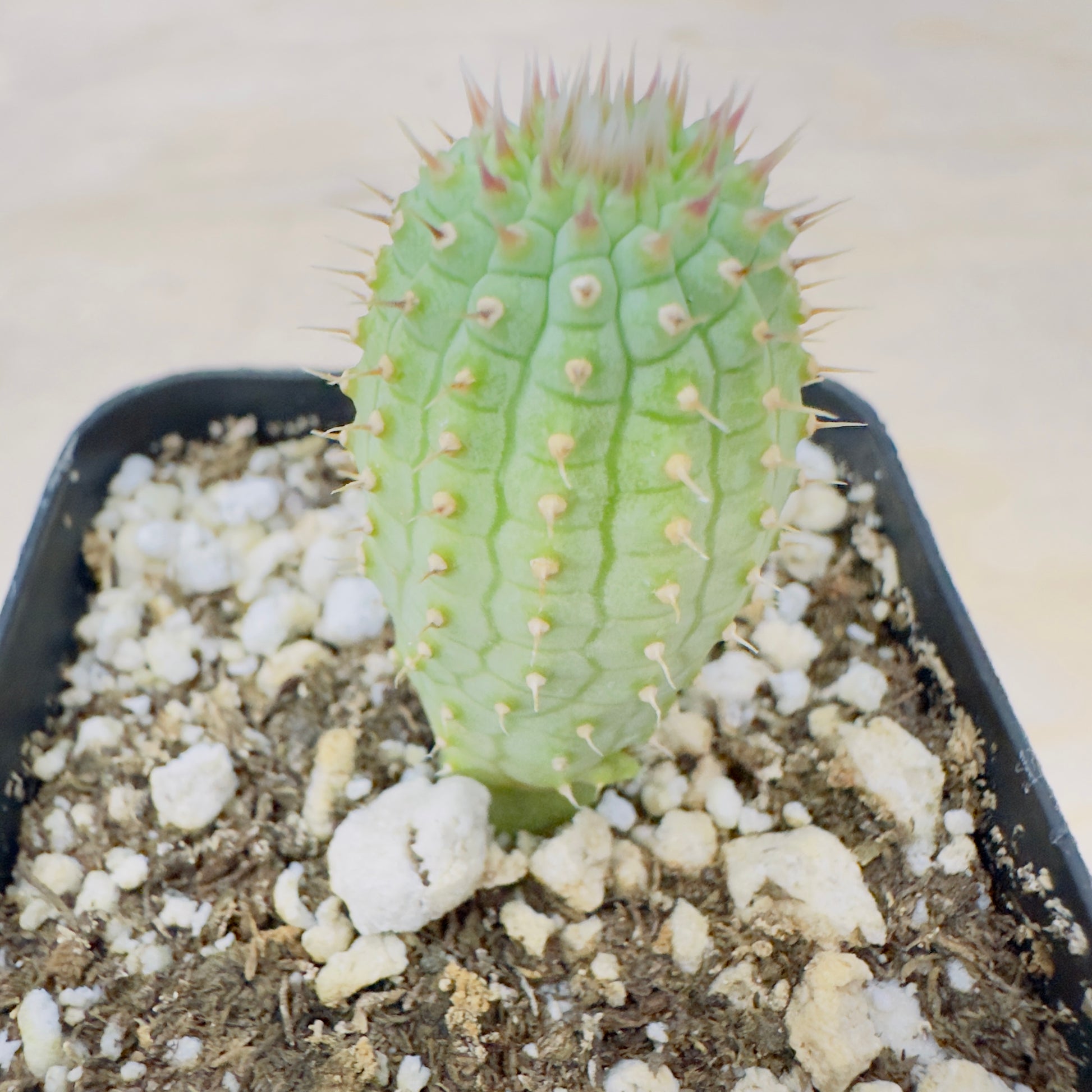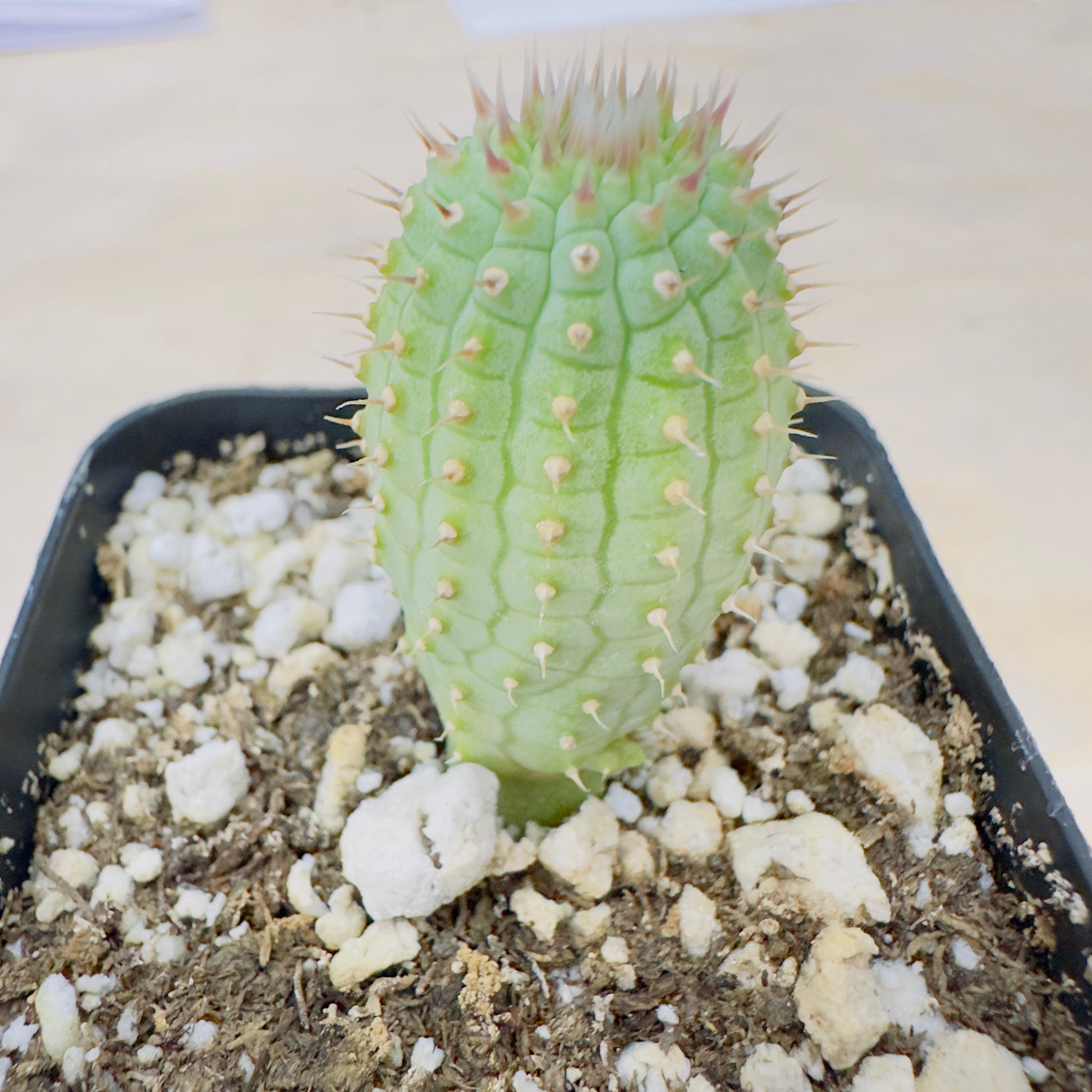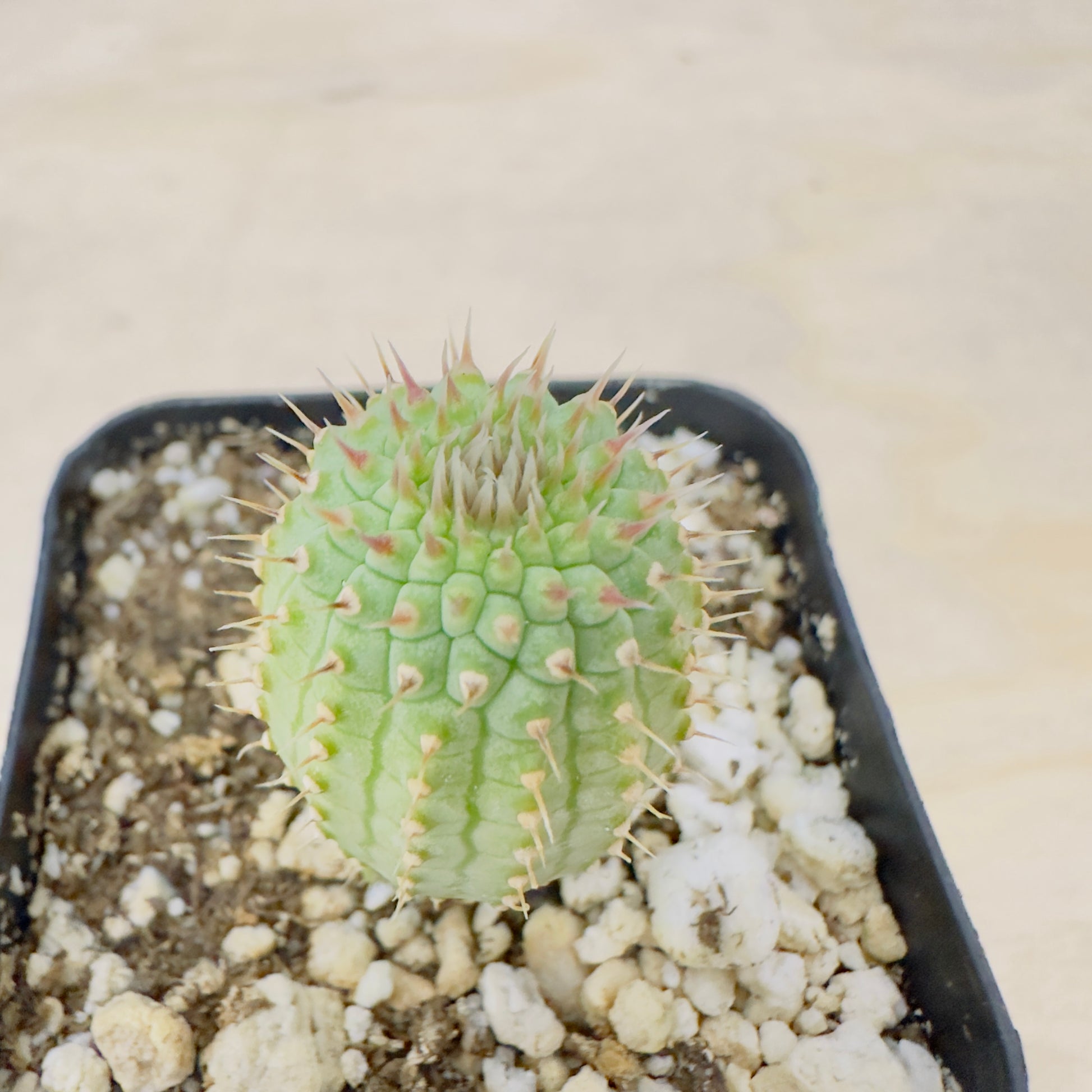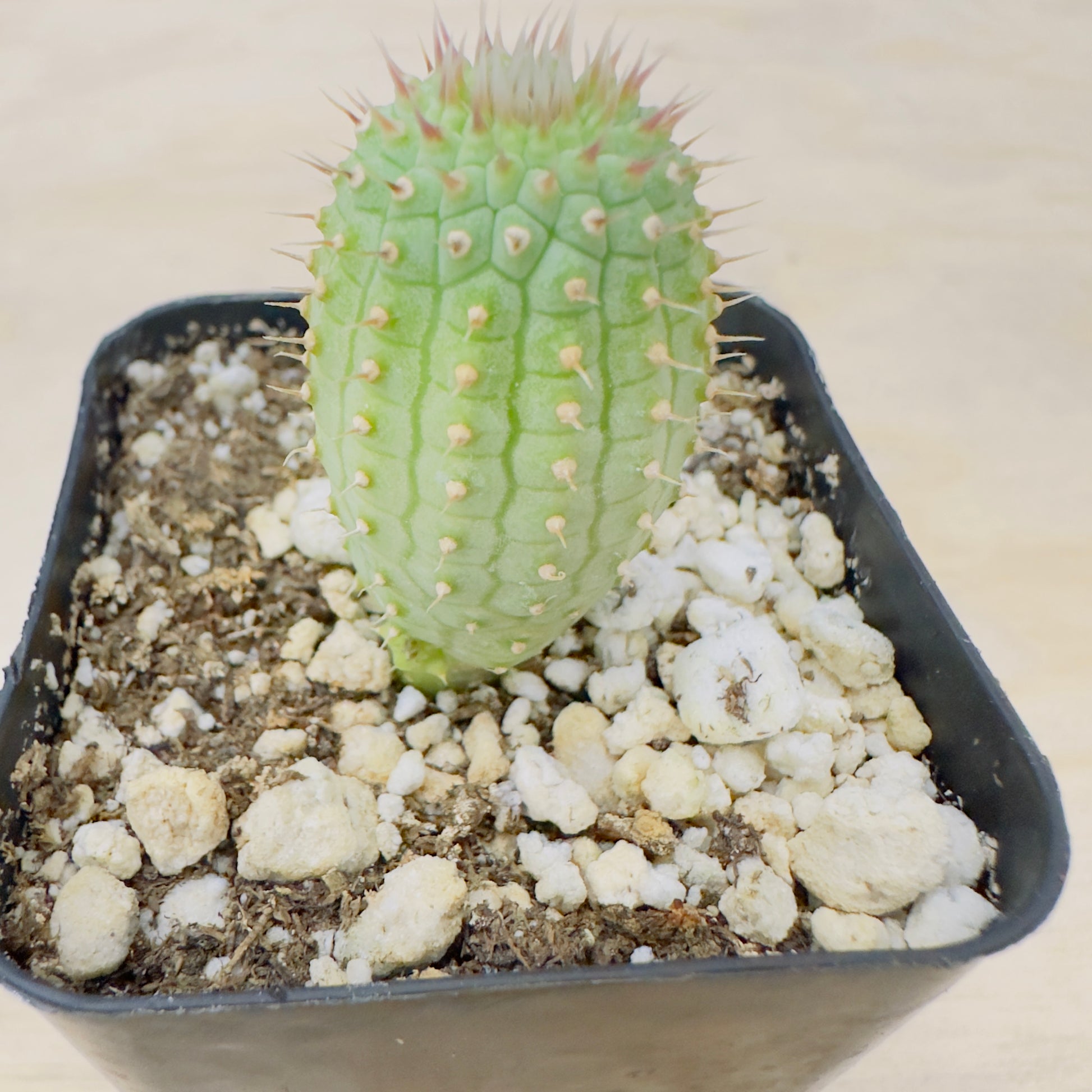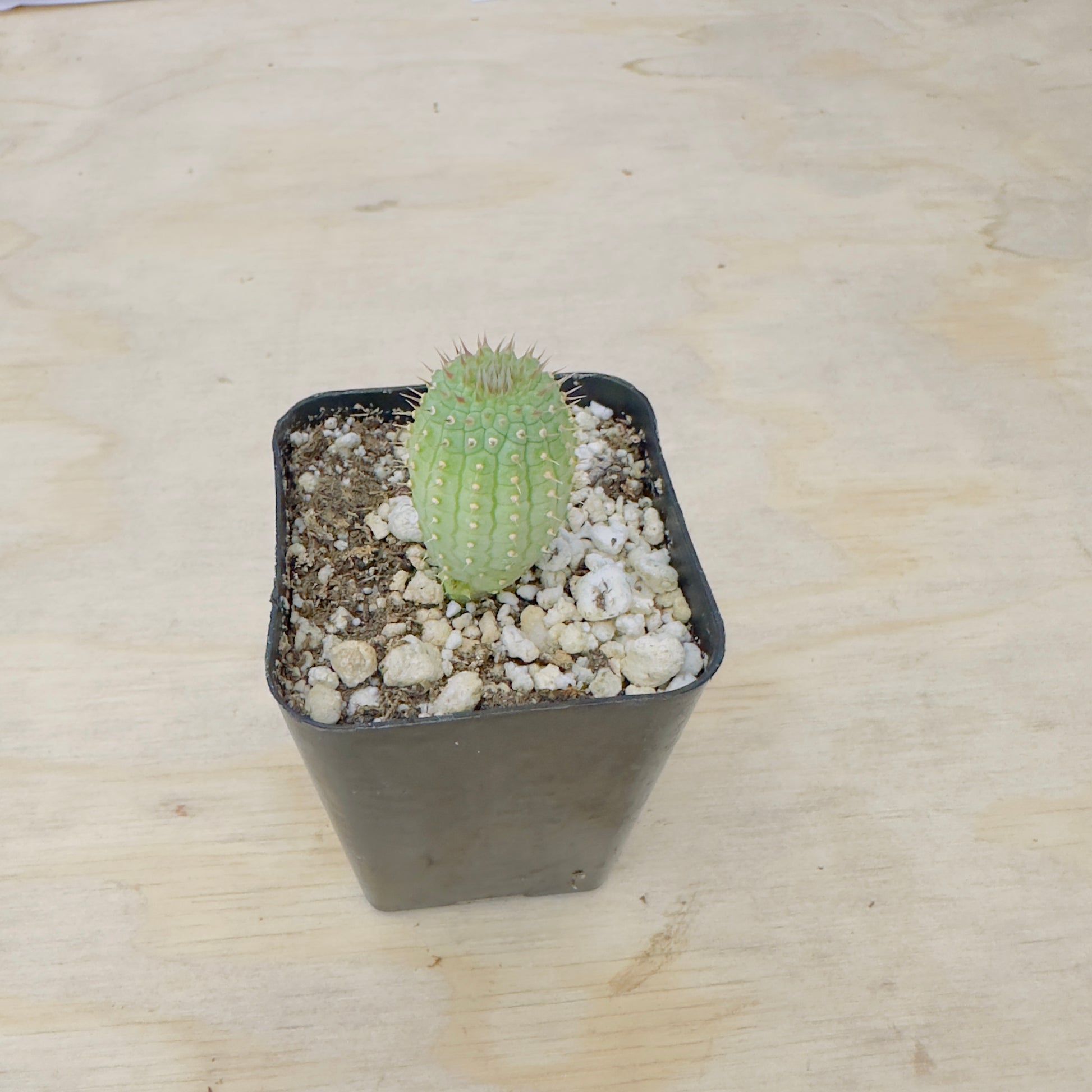Seah
Hoodia Gordonii - Bushman’s Hat
Hoodia Gordonii - Bushman’s Hat
In stock
Couldn't load pickup availability
Morphological Characteristics
Hoodia gordonii is a succulent medicinal plant known for its upright, cactus-like appearance and historical use as an appetite suppressant by indigenous San people. Despite its cactus-like form, it is not a true cactus.
It grows in clumps of vertical, fleshy green stems that can reach 30–100 cm (1–3 feet) tall. Each stem is ribbed and lined with small, sharp spines. The surface is rough and glandular, and may exhibit a purplish tinge in full sun.
Flowers are large, star-shaped, and deeply veined, ranging in color from yellow to reddish-brown. They emit a strong odor similar to rotting meat, which attracts pollinating flies.
Growth Habits
Hoodia gordonii is a slow-growing, leafless succulent that prefers arid climates. It grows best in dry conditions with good airflow and strong light. Plants are typically grown from seed and form dense clusters over time.
Maintenance Points
• Lighting: Full sun is essential. In cultivation, place in the brightest location possible, such as a south-facing window or under grow lights.
• Watering: Water sparingly. Allow soil to dry out completely between waterings. Avoid watering in cool/dormant months.
• Soil: Requires sharply-draining sandy or mineral-based soil. Use a cactus mix amended with pumice or perlite.
• Temperature: Prefers warmth. Keep between 20–35°C (68–95°F). Minimum safe temperature is 5°C (41°F); not frost-hardy.
• Fertilization: Apply diluted, low-nitrogen succulent fertilizer during the growing season. Do not fertilize in winter.
• Handling: Wear gloves—spines are sharp. Repot with care to avoid damaging roots.
• Pests: Generally pest-resistant but may be affected by root mealybugs or rot if overwatered.
Display & Use
Due to its unique shape and medicinal history, Hoodia gordonii is often featured in:
• Ethnobotanical collections or desert-themed succulent gardens
• Educational botanical displays focused on traditional medicine
• Bright, warm indoor spaces with minimalist containers






